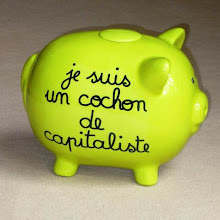Source : Mises Economics Blog
On the other hand, B.Caplan would probably admit that, under a free market, the bank and its customer would be free to try any contract they please, be it 100% or FRB, so long as the customer is informed and voluntarily accepts the contract.
What happens then if bank A offers 100% accounts, and bank B offers fractional accounts? Their respective receipts will circulate as competitive currencies, both redeemable, yet not exactly alike. Consumers will be the only judges of the qualities of both currencies. My guess is that A's receipts will be more marketable and would soon outcompete B's receipts, but this can only be determined by letting the free market operate, not by argumentative reasoning.
Réponse de Block
The present debate got started when I read that Caplan had characterized Rothbard’s position on fractional reserve banking (frb) as "crazy." Further adding insult to injury, he denotes this position as too easy of a target to hit out against. Now, I suppose, I think of Milton Friedman roughly in the way that Caplan regards Rothbard. Yet, I never characterized Friedman’s views as "crazy" nor as a "too easy" target. That really got in my craw, and led me to write to Caplan.It seems that your position is to assume that the bank's customer wants a 100% warehousing service (bailment contract), in which case you are right to say that FRB is fraudulent. But what if some customers agree to have a fractional reserve account? [I don't know the English word for this, would it be called a lease contract?]
On the other hand, B.Caplan would probably admit that, under a free market, the bank and its customer would be free to try any contract they please, be it 100% or FRB, so long as the customer is informed and voluntarily accepts the contract.
What happens then if bank A offers 100% accounts, and bank B offers fractional accounts? Their respective receipts will circulate as competitive currencies, both redeemable, yet not exactly alike. Consumers will be the only judges of the qualities of both currencies. My guess is that A's receipts will be more marketable and would soon outcompete B's receipts, but this can only be determined by letting the free market operate, not by argumentative reasoning.
Réponse de Block
You make some important points. In my view, even if both parties agree to a frb, it is still illicit. Property rights underlie contract.

Aucun commentaire:
Enregistrer un commentaire